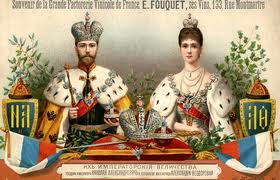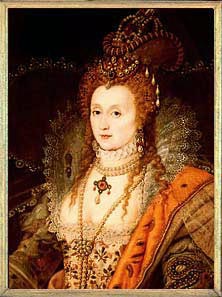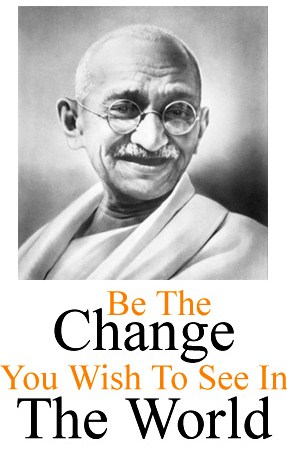 A government can only be as balanced and wise, just and caring as its people. Lenin’s goal of replacing monarchy with socialism was a well-intended but misguided attempt to incorporate the Queen’s ethic of shared authority into social governance. Unfortunately, neither the Russian nor Chinese revolution effectuated this ideal. They merely replaced kings with dictators, made a few changes in the hierarchical structures that supported them, and repressed the populace with the same zeal as their predecessors.
A government can only be as balanced and wise, just and caring as its people. Lenin’s goal of replacing monarchy with socialism was a well-intended but misguided attempt to incorporate the Queen’s ethic of shared authority into social governance. Unfortunately, neither the Russian nor Chinese revolution effectuated this ideal. They merely replaced kings with dictators, made a few changes in the hierarchical structures that supported them, and repressed the populace with the same zeal as their predecessors.
Why did these attempts to balance feminine values with masculine ones fail? Because no matter how fancy the words or noble the ideals of the new Son-rebels, the Shadow King and Queen still ruled the collective psyche. Neither the U.S.S.R. nor China had evolved to the point where enough people were prepared to face their personal shadows, accept limits on their ego needs, or empower their inner opposite masculine and feminine sides. They did not have a strong enough sense of their healthy King and Queen archetypes to withdraw their projections from Stalin and Mao and make wiser choices. Had the populace of these countries been more psychologically aware, perhaps the noble ideals could have become a workable reality.
 A more successful outcome occurred in the relationship between Great Britain and India. For hundreds of years, the citizens of Great Britain projected their inner Kings onto physical monarchs, male and female alike, in whom they endowed all their moral authority. These parental figures had the power of life and death over their subjects, including the people of India whom, in the way of Shadow Kings everywhere, the British monarchy invaded, conquered, and subjugated.
A more successful outcome occurred in the relationship between Great Britain and India. For hundreds of years, the citizens of Great Britain projected their inner Kings onto physical monarchs, male and female alike, in whom they endowed all their moral authority. These parental figures had the power of life and death over their subjects, including the people of India whom, in the way of Shadow Kings everywhere, the British monarchy invaded, conquered, and subjugated.
But then an obscure Indian lawyer named Gandhi questioned the authority of this foreign government and its regal figureheads. Assuming the authority of his Sovereign, which was a harmonious blend of the clear-thinking, justice-oriented King and the caring, sacrificial Queen, and basing his actions on his highly developed sense of universal justice, love, and moral responsibility, he refused to bow to the kingship of Great Britain.
 With his guidance, the Indian people awakened to their healthy inner Kings and Queens, rejected the monarchy and, following Gandhi’s example of non-violent civil disobedience, extricated themselves from foreign rule to become sovereign over themselves and their own country. Insofar as they were successful in setting up a just governmental hierarchy (thus constellating the King), and accomplishing this without violence to their British brothers and sisters (non-violence being an attribute of the compassionate Queen), they demonstrated what an authentic partnership between the King and Queen looks like in the physical world.
With his guidance, the Indian people awakened to their healthy inner Kings and Queens, rejected the monarchy and, following Gandhi’s example of non-violent civil disobedience, extricated themselves from foreign rule to become sovereign over themselves and their own country. Insofar as they were successful in setting up a just governmental hierarchy (thus constellating the King), and accomplishing this without violence to their British brothers and sisters (non-violence being an attribute of the compassionate Queen), they demonstrated what an authentic partnership between the King and Queen looks like in the physical world.
What is it about the negative Shadows of the King and Queen that thwarts our efforts to create lawful order and moral virtue in society? The Shadow King lives in his head. He is self-absorbed, aloof, legalistic, coldly logical, and so indifferent to otherness that he’s insensitive, uncaring, and emotionally out of touch. Obsessive about self-preservation, he is hostile and destructive to others. The Shadow Queen lives in her heart. She is too accepting and tolerant, overly sensitive, unhealthily giving and sacrificial, too open to otherness, and allows tender feelings to trump reason. Obsessive about species-preservation, she fails to set and protect healthy limits and is self-destructive.
Both extremes inhabit America’s collective psyche today. They sit on both sides of the aisle, and neither political party is sufficiently cognizant of its own potential for destruction. Our country’s future does not hinge on victory for either side, but on nurturing greater psychological awareness in ourselves. It’s time we stopped obsessing about others’ shadows and started owning our own.
You can purchase Healing the Sacred Divide at this Amazon link or www.Larsonpublications.com.
A Matter of Heart
“. . . when our left and right brain work in harmony, we begin to access our deeper Self and feel its guidance and support.


0 Responses
Nice essay. Thank you and thanksgiving that you are articulating the necessity for our inner work to extend to our outer social endeavors.
Peace
Thank you, Tallulah. Peace to you too.
Many thanks to Maxwell of Carl Jung Depth Psychology and Michael of BEAUTY ART for reposting this piece!